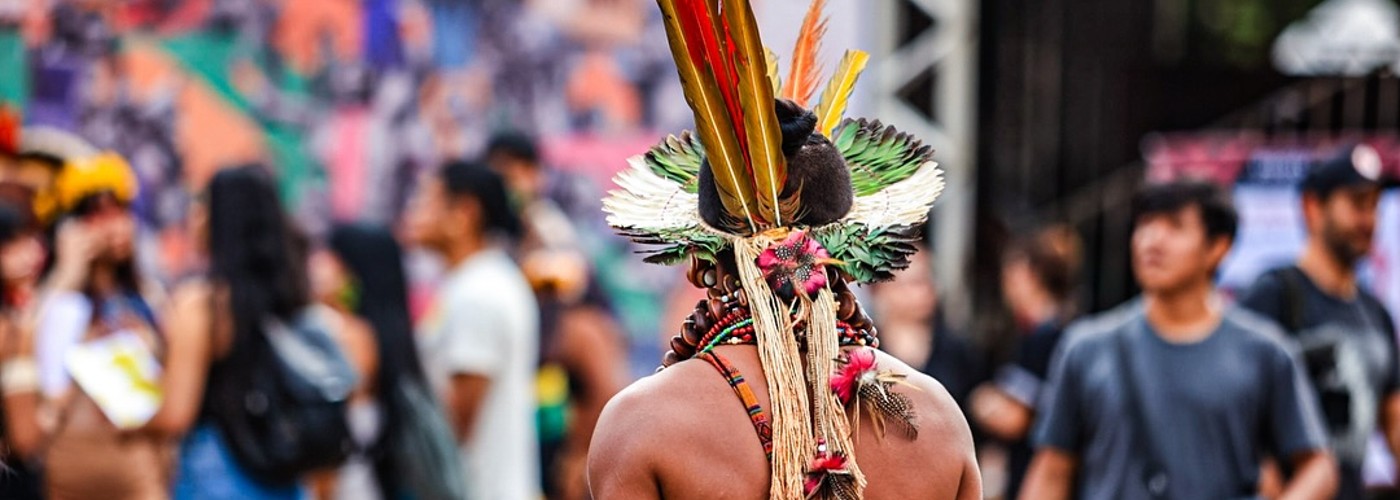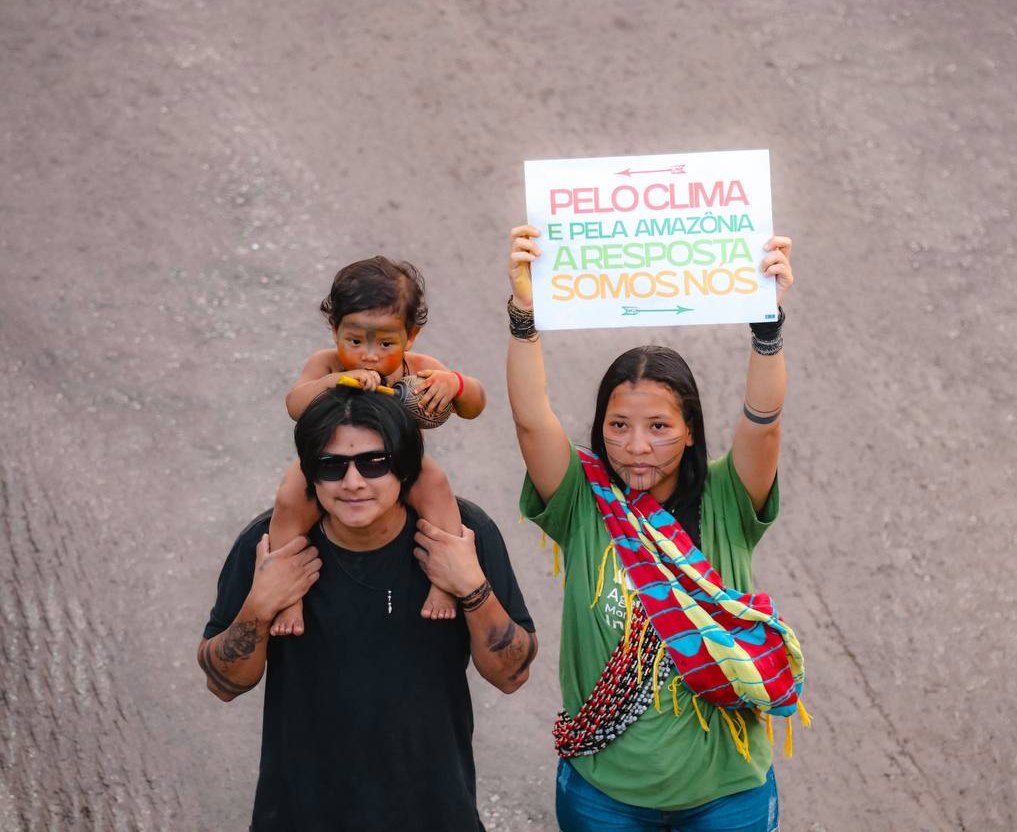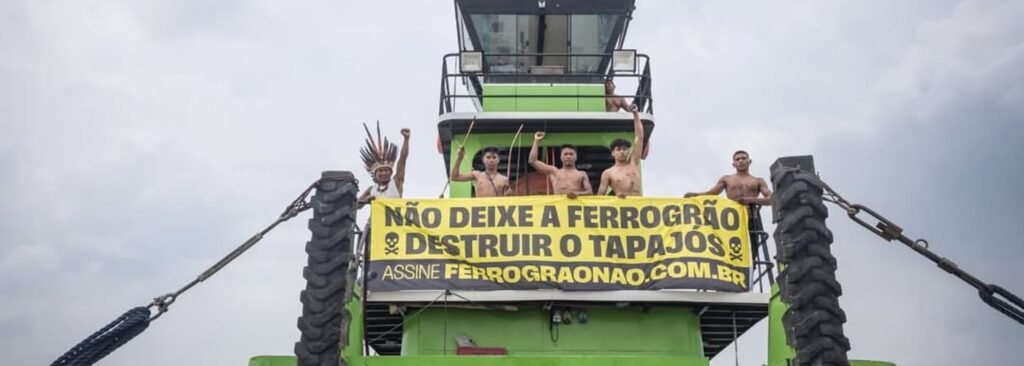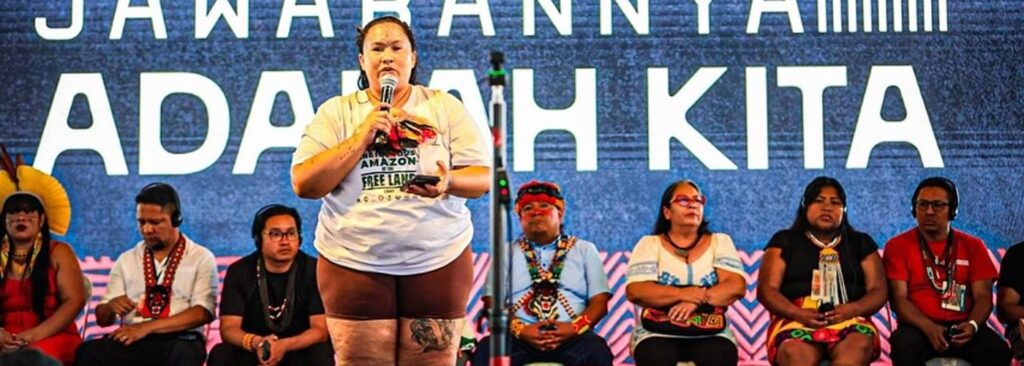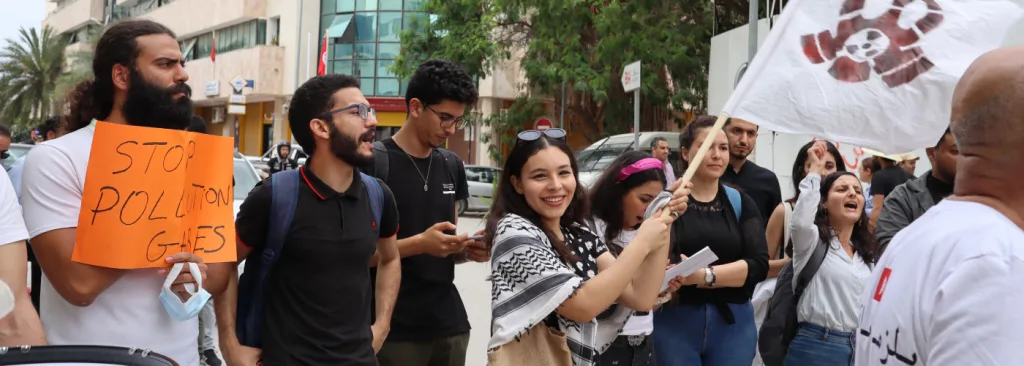Indigenous peoples are the original inhabitants of the Brazilian Amazon, comprising about 180 groups (and 305 groups in the whole of Brazil), each with distinct languages, traditions, and social structures. Together, they total around 1.7 million people, or 0.8% of Brazil’s population. Indigenous peoples and their lands form an important protective shield for the flora and fauna of the Amazon, which have faced threats from modern human encroachment since Europeans arrived 500 years ago.
By Jaël Poelen & Jakeline Xavier
Indigenous peoples have an equally long history of mobilization and resistance to this encroachment. Ongoing oppression has forced them to protect their cultures and fight for their lands. The Brazilian Constitution of 1988 protects Indigenous people and lands and acknowledges their rights. But in practice, their territories in the rainforest are still being stolen and/or destroyed by climate change, deforestation, and mining.
COIAB’s international climate advocacy
Enter the Joint Coordination of the Indigenous Organizations of the Brazilian Amazon, also known as COIAB. Of Brazil’s over two hundred Indigenous organizations, COIAB is the largest. Hivos supports COIAB in national and international advocacy and training through our Voices for Just Climate Action (VCA) program. One of the most important outcomes of our partnership was the creation of the G9 of the Indigenous Amazon, an international group of leaders from Indigenous organizations in the nine Amazonian countries. The G9 was announced in October 2024 at the United Nations Conference on Biodiversity in Colombia. The aim is to position these Indigenous organizations of the Amazon Basin as international authorities and world powers in terms of biodiversity and climate on the same level as the G7 or G20.
The group has formulated an international advocacy strategy for COP30, the UN climate summit taking place in Belém in November 2025. It addresses the authority and governance of Indigenous leaders, as well as current challenges regarding biodiversity, climate, and desertification.
Territorial demarcation is the central axis of G9’s climate policy and strategy for COP30. “Unifying our actions with the other countries of the Amazon Basin is an achievement. We are continental brothers, but we don’t always manage to speak the same language, even though we have similar problems,” says Alana Manchineri, international advisor at COIAB. She is an Indigenous leader closely following the G9 agenda.
Their joint advocacy efforts have led to fruitful learning exchanges between the nine countries. “In Brazil we have a constitution that protects us through articles 231 and 232. And we can see that in some other countries, especially here in the Amazon Basin, Indigenous peoples have no article or law that guarantees them protection and, above all, recognition as Indigenous peoples. On the other hand, there are many Indigenous movements in various countries that have taught us about mobilization, like Ecuador, for example,” explains Alana Manchineri.
Training and advocacy
But COIAB engages in many more activities, for example, training. Their VCA-supported course, Climate Change, Carbon, and REDD in the Indigenous Amazon, drew over 230 participants from all nine countries. The course promoted dialogue between traditional and Western knowledge and featured Indigenous climate authorities as facilitators, such as Sineia do Vale, coordinator of the Indigenous Committee on Climate Change (CIMC) and recognized as Brazil’s Indigenous scientist. The sessions were also important for exchanging knowledge on territories and strengthening initiatives for climate change adaptation.
In 2023 COIAB was one of the organizers of the Assembly of the Peoples of the Earth for the Amazon, in which 800 Indigenous leaders took part. It resulted in a letter from the Indigenous Peoples of the Amazon Basin to state leaders under the Amazon Cooperation Treaty Organization (OTCA) treaty with demands for COP30. In the same year, COIAB took Indigenous leaders to COP28 where they participated in debates on climate finance for Indigenous peoples, REDD+, the just energy transition, and the loss and damages fund.
Voices for Just Climate Action
Since 2022, VCA in Brazil has been supporting advocacy and amplifying the Indigenous voices of the Amazon as protagonists in building effective climate solutions. The end of the program in Brazil was marked this year by over 60 representatives of allied organizations in the Amazonian territories who gathered to celebrate the program and the transformations achieved in our three years of collaboration.

